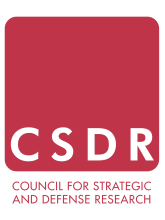
Webinar
- Wednesday, 18. September 2024 3:00 pm – 4:30 pm Save in my calendar
India, Europe and the Geopolitics of Space
The Indian Foreign Policy Series: People, Power and Perspectives
Date and Time: 18 September 2024, 15:00 hrs IST (11:30 hrs CEST/CET)
About
The success of India’s Chandrayaan-3 mission that landed a rover near the lunar South Pole in August 2023 has generated significant international interest in the technical prowess of the Indian Space Research Organisation (ISRO) and the country’s geopolitical ambitions in the increasingly contested lunar environment. Since its modest beginnings in the 1960s, the Indian space programme has come of age. India has further signaled its ambitions by focusing on crewed space missions (with US-based Axiom Space) and developing its own space station, the 'Bharatiya Antariksha Station'. Its bold strategy for Low Earth Orbit (LEO) and lunar missions highlights India's aspirations to become a serious 'space power', enhancing its diplomatic influence in the international community.
As the strategic value of space power is increasing with, for example, more and more weapon systems becoming dependent on space systems, the geopolitical arena of space is heating up once again. While Russia, the US, and increasingly China are dominant players in space politics, the growing influence of other actors like India and the EU should not be underestimated. In this rapidly evolving arena, there are therefore substantial collaboration opportunities between India and Europe. The EU’s European Space Agency (ESA) leads in civil and scientific space activities and has recently successfully launched its Ariane 6 rocket, while India’s developments in the space sphere present complementary strengths.
Against this backdrop, this webinar seeks to explore the evolution, current capabilities, and future ambitions of the Indian space programme within the realities of the current geopolitical context and identify how India-EU cooperation could shape the future of space exploration, security and global space governance.
Relevant Questions for Discussion
• How have the objectives of the Indian space programme evolved from its fledgling years to its current status as a notable player in the space domain?
• What are the current capabilities of India’s space programme and its future ambitions? What sets it apart from other countries in terms of strengths and weaknesses?
• As space increasingly becomes yet another domain of rising geopolitical competition, what are the impacts on India’s and the EU’s space programme? What are the key rivalries as well as potential cooperative partners of note?
• Where do India and the EU situate each other in this particular geopolitical context? And what are the opportunities for collaboration between the Indian and European space sector?
Speakers
- Patrick Chatard-Moulin
Deputy Head, Space Division, European External Action Service (EEAS)
Patrick Chatard-Moulin is Deputy Head of the Space Division at the EEAS, focusing on the space security and defense aspects of EU policy and its international dimensions. With over 15 years at the EU, he has worked on space and defense issues, including Space Surveillance, GOVSATCOM, and the EU SatCen. He was among the first at the European Defence Agency, initiating cooperative projects before joining the European Commission’s DG GROW. From 2017 to 2021, he managed the European Border Surveillance System (EUROSUR) and helped draft the new European Border and Coast Guard Regulation. Previously, he served for over 15 years as an Engineering Officer in the French Air Force. Patrick holds degrees from the French Air Force Academy, Telecom Paris, and the International Space University, where he has also lectured.
- Dr. Susmita Mohanty
Director General, Spaceport SARABHAI
Dr. Susmita Mohanty is a leading spaceship designer, entrepreneur, and space diplomat. She co-founded Spaceport SARABHAI (S2), India’s first space think tank, to elevate India's global presence in space policy and sustainability. She has co-founded three space companies on three continents and played a key role in the first U.S.-India satellite launch agreement. Previously, she worked with NASA and Boeing on critical space missions. Named among BBC’s 100 Women and Financial Times' ‘25 Indians to Watch,’ Dr. Mohanty serves on global advisory boards and is a member of the World Economic Forum’s Global Future Council for Space Technologies.
Prof. K R Sridhara Murthi
Advisor at JAIN (Deemed-to-be University), Bangalore, and Honorary Director at the International Institute of Space LawProf. K R Sridhara Murthi is an Advisor at JAIN (Deemed-to-be University), Bangalore, and Honorary Director at the International Institute of Space Law. With over 30 years in the Indian Space Programme, he has contributed to space policy, industry development, and expanding India's commercial space ventures globally. He has served as Managing Director of Antrix Corporation and promoted India-Europe space cooperation as Counsellor (Space) at the Indian Embassy in Paris. An accomplished author of over 70 publications, he has received the International Academy of Astronautics Social Sciences Award, the Lifetime Achievement Award from the International Institute of Space Law, and the ISRO Merit Award for Space Commercialisation.
Moderator
Amb Rakesh Sood
Distinguished Fellow, CSDR and Former Diplomat
Ambassador Rakesh Sood joined the Indian Foreign Service in 1976, serving in Brussels, Dakar, Geneva, and Islamabad in different capacities, and as Deputy Chief of Mission in Washington DC. He has served as India’s first Ambassador and Permanent Representative to the Conference on Disarmament in Geneva and later as Ambassador to Afghanistan, Nepal, and France. At the Foreign Ministry, he set up the Disarmament and International Security Affairs Division and led it for eight years. After retiring in 2013, Ambassador Sood was the Special Envoy of the Prime Minister for Disarmament and Non-Proliferation until May 2014. He is presently a Distinguished Fellow at CSDR.
This event is organized in collaboration with the Council for Strategic and Defence Research (CSDR) and the Heinrich-Böll-Stiftung EU Office.
- Timezone
- IST
- Part of the series
- The Indian Foreign Policy Series: People, Power and Perspectives
- Address
-
➽ Online Event
- Language
- English

